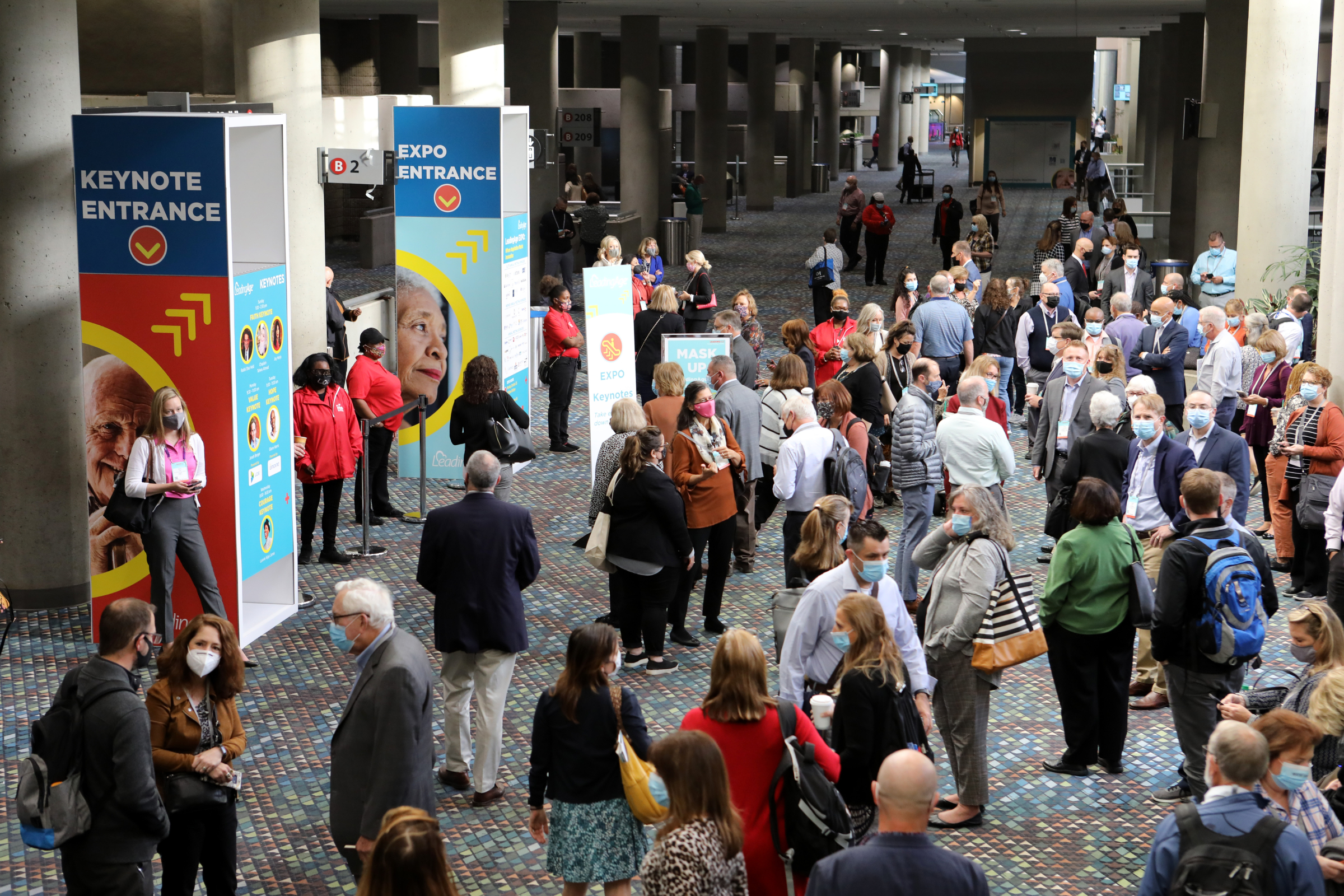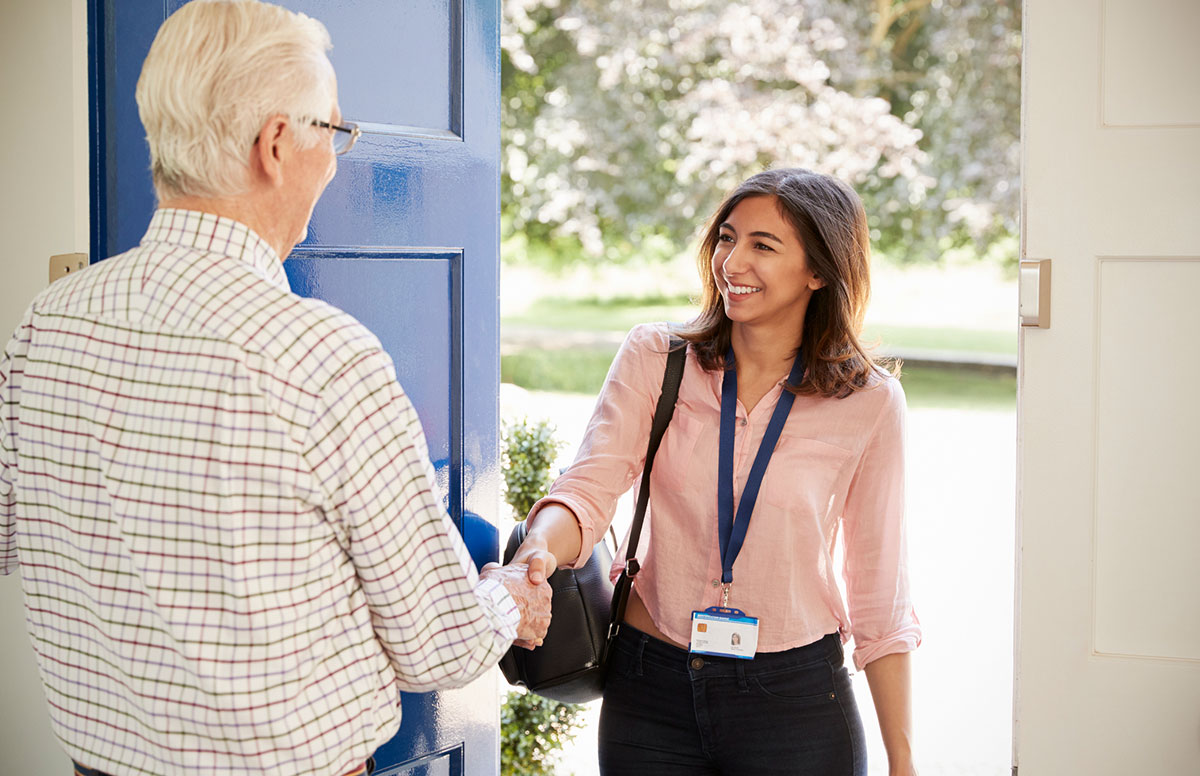LeadingAge Interview with Dr. Salman Ashraf
Q: We are seeing a rise in cases across the country but there hasn’t been as much attention or concern as we have had in other waves. Is this because this subvariant isn’t as severe or is it just being ignored as COVID fatigue is high right now?
A: Cases are rising and hospitalizations are also increasing, so we need to pay attention to the increase in cases. It may be that COVID fatigue is contributing to the increase in cases. Especially for people who are in long-term care getting COVID and possible subsequent hospitalizations are difficult and may have serious consequences for health and quality of life. So, we do need to take reasonable precautions.
Q: What are you seeing in Nebraska? Are cases going up in long-term care and is it mostly residents or staff?
A: Both resident and staff cases are increasing. About 90+% of our residents are fully vaccinated, and 85+% have received their first boosters, but immunity wanes. We are lagging in getting people their second boosters. We are seeing residents getting infected. We are seeing hospitalizations, but it is too early to know how widespread hospitalizations and mortalities will be. Vaccination has clearly provided some protection as many people are only mildly symptomatic. Nebraska has seen one of the lowest mortality rates in the country in long-term care. That has been the result of a great cooperative effort from the state, offices of public health, and long-term care organizations.
Q: Some are saying that it is likely everyone will get COVID and we should just let that happen to increase immunity. On the other hand, it seems true that the longer the virus circulates, the more likely variants will occur. How would you respond?
A: Even if everyone gets COVID, it will be a short-lived immunity. The approach of just letting everyone get COVID is not the best. A better approach is to get vaccinations and boosters and to protect ourselves through common-sense measures. I am not supporting lockdowns or extreme measures, but rather good infection control practices. We know that older adults need quality of life, and it is fine to be in daily life, but, for example, if residents are at larger indoor gatherings, have them mask. Asking visitors to mask, having everyone practice good hand hygiene and other such infection control measures will help to keep people safer.
Q: Treatments for COVID-19 are evolving. What are the best ways to think about treatment right now?
A: The best treatment right now for our population is the Paxlovid antiviral medication. It reduces hospitalizations and death by 85+%. Since older people may be on several medications, there are drug interactions which must be considered. Sometimes the other drugs can be held for a few days, or there may be other substitute medication options. There are other treatments such as Molnupravir and monoclonal antibodies, but Paxlovid would be the first choice.
Q: Would you recommend Paxlovid for everyone, or only people with symptoms?
A: We are recommending it for people with symptoms. However, those symptoms could be mild, such as fatigue. So, people should be carefully screened for symptoms and if there are any symptoms Paxlovid should be started.
Q: What questions or concerns about Paxlovid are you hearing from members in Nebraska?
A: We are seeing some hesitance to prescribe Paxlovid, perhaps because some physicians aren’t aware of the expanded availability of Paxlovid or they may not have experience prescribing Paxlovid. We are doing webinars for medical directors, sending out informational flyers to primary care providers, and trying to increase utilization. We have not encountered the barrier of Paxlovid availability. In Nebraska there is a website where long term care providers can request medication and they will receive it within 24 hours.
Q: In other settings such as adult day services, home care, older adult housing, if you are a staff person and run into a physician who is not prescribing Paxlovid, what would you advise?
A: There are many pharmacies that have the treatment available and they could work with the physician to get the drug. They can also advise regarding drug interaction issues. Another option is that there is an online locator for Paxlovid.
Q: We have heard about how HVAC systems and UV treatments can help with COVID transmission, but they are also costly to implement. How helpful are these tools and are they worth pursuing as a way to control spread?How helpful are these tools and are they worth pursuing to control spread?
A: Better ventilation is helpful not only for COVID, but for other transmissible diseases as well. Improving ventilation would be a good investment. UV treatments are adjunct options and if we follow usual infection protocols they may be as effective. If I had to decide between the two, I’d go for improving ventilation, though UV can help.
Q: As we head into summer, what do you see as the main factors we need to consider to ensure we keep cases down and protect those we serve and our loved ones?
A: The best things are the basics we have been doing – masking, screening for symptoms, testing, vaccinations, and boosters. These are the primary defense mechanisms. If we do these, we can lead a pretty interactive life. We should also make decisions based on the community transmission rates. The more we can do outside, the better. If you have an indoor gathering, make sure there is good ventilation. Our residents can have visitors and enjoy being together as long as we are following a few small practices and adjusting our responses based on community transmission. Some people ask, “When will we be able to treat COVID like the flu? Well, we may be doing that somewhat now. If there is a flu outbreak, there will still be precautions – masks for unvaccinated staff members, giving Tamiflu, no communal dining, etc. So, in some ways our responses may be very similar.
Q: Is Paxlovid preferred over other options? Does it differ whether someone is vaccinated or not?
A: It does not matter whether someone is vaccinated or not. Paxlovid is my preferred choice because it is highly effective, and it is an oral medication which is easier to administer. If there is no drug interaction that makes use impossible, that is the best option.
Q: Should we be doing antigen testing for visitors? Is there value in that?
A: Yes, there is value in antigen testing for visitors, particularly if community transmission rates are high. You need to be careful about CMS rules and regulations related to requiring it, however.
Q: We have planned for several large outdoor events with families. Would it make sense to do smaller scale events?
A: Since you are trying to minimize risk holding smaller gatherings would be another tool in your toolbox. In these situations, we need to weigh the risks and benefits – is it already planned? Will residents and families be upset? Is there a way to spread people apart while outside? You could recommend outdoor masking. We can make things safer while still moving forward with what is good for our residents’ mental and physical health.

Most Recommended
July 03, 2025
 Budget Reconciliation 2025
Budget Reconciliation 2025
June 27, 2025
Pathways for Foreign-Born Workers
Recently Added
July 03, 2025
 Update and Insights: SNF Off-Cycle Revalidations
Update and Insights: SNF Off-Cycle Revalidations
July 02, 2025



